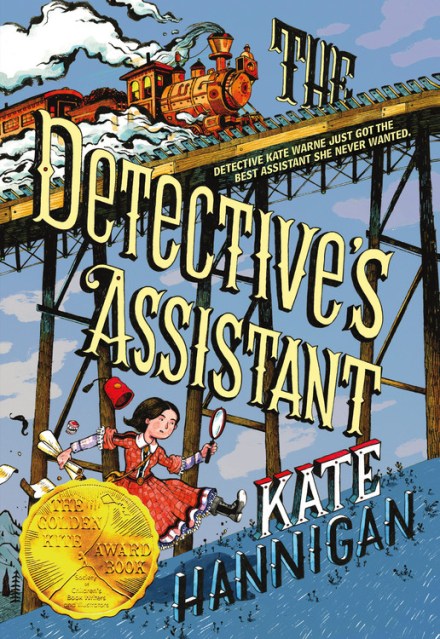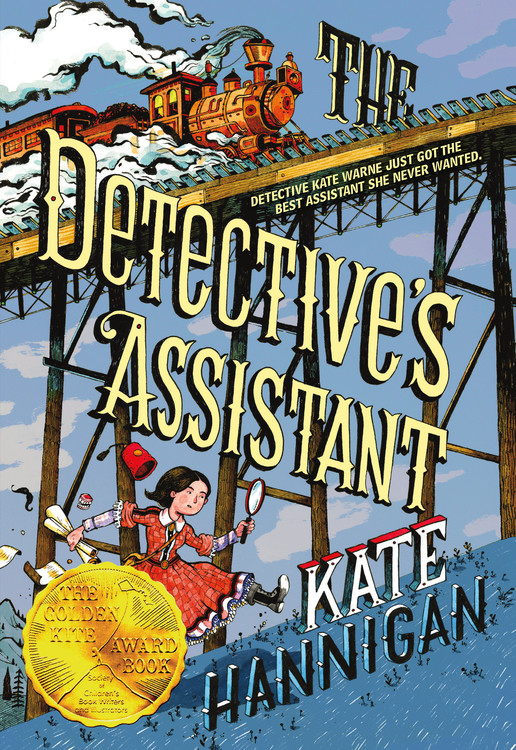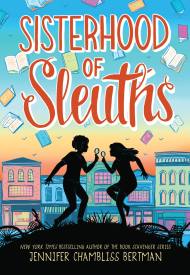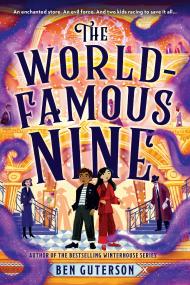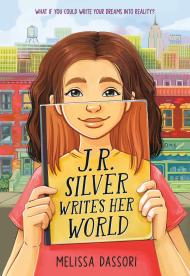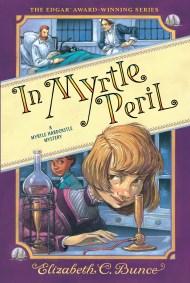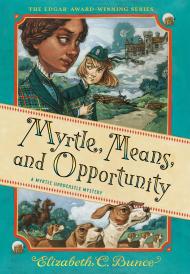Promotion
Use code MOM24 for 20% off site wide + free shipping over $45
The Detective's Assistant
Contributors
Formats and Prices
Price
$7.99Price
$11.99 CADFormat
Format:
- Trade Paperback $7.99 $11.99 CAD
- ebook $6.99 $8.99 CAD
- Audiobook Download (Unabridged)
This item is a preorder. Your payment method will be charged immediately, and the product is expected to ship on or around April 5, 2016. This date is subject to change due to shipping delays beyond our control.
Also available from:
Eleven-year-old Nell Warne arrives on her aunt’s doorstep lugging a heavy sack of sorrows. If her Aunt Kate rejects her, it’s the miserable Home for the Friendless.
Luckily, canny Nell makes herself indispensable to Aunt Kate…and not just by helping out with household chores. For Kate Warne is the first-ever female detective employed by the legendary Pinkerton Detective Agency. And Nell has a knack for the kind of close listening and bold action that made Pinkerton detectives famous in Civil War-era America. With huge, nation-changing events simmering in the background, Nell uses skills new and old to uncover truths about her past and solve mysteries in the present.
Genre:
-
A Booklist Editors' ChoiceA Chicago Public Library Best BookA Nerdy Book Club Award WinnerA Bank Street College Best Children's BookAn SCBWI Golden Kite WinnerAn ALA Amelia Bloomer Project List for Feminist Books SelectionA Mighty Girl Top Books for Tweens and Teens Pick
-
* "Accessible and captivating...With skilled writing that conveys the excitement of detective work, the appeal of history, and Nell's authentic, good-humored personal growth, this is one for the ages."The Bulletin (starred review)
-
* "Hannigan keeps a strong narrative hand on the several stories she has going on simultaneously: the mysteries surrounding the deaths of Nell's father and uncle; Nell's correspondence with her best friend, who traveled the Underground Railroad to safety in Canada; and several Pinkerton adventures that involve chicanery, American history, and lots of excitement."Booklist (starred review)
-
"Hannigan makes skillful use of period details, bringing the novel's threads together in a nail-biting conclusion. Nell is a fearless, no-nonsense heroine, and her dry-witted narration drives this rollicking historical escapade."Publishers Weekly
-
"A rousing fictional account of the remarkable career of a pioneering woman."Kirkus
-
"Nell is an irrepressible character: spirited, thoughtful, and intuitive...Recommend to readers who enjoy adventure, history, and stories featuring independent, strong-minded girls."SLJ
- On Sale
- Apr 5, 2016
- Page Count
- 368 pages
- Publisher
- Little, Brown Books for Young Readers
- ISBN-13
- 9780316403498
Newsletter Signup
By clicking ‘Sign Up,’ I acknowledge that I have read and agree to Hachette Book Group’s Privacy Policy and Terms of Use
